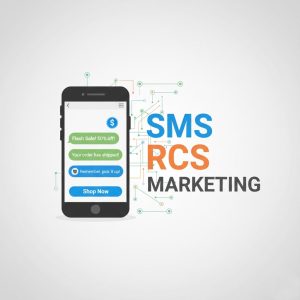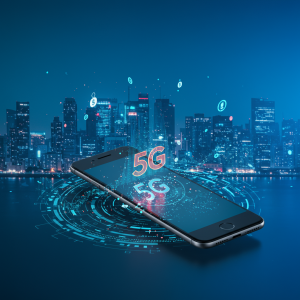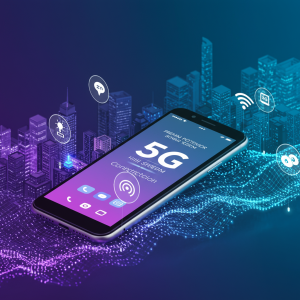How Effective is Mobile Marketing? Unpacking the Benefits and Strategies

From casual scrolling to researching and purchasing things online, these so-called “mobile diapositives” have completely changed the way we communicate. This shift in how people communicate and consume information has radically altered the manner through which marketers must get their message out. In this mobile age, the power of devices has taken a whole new form. This transformation has put in the hands of every user powerful tools available for purchase and marketing purposes. Mobile marketing, as a result of this profound shift in methods, is now one of the most powerful tools available for businesses today. It can serve as an effective complement to other technologies currently in existence such as data processing and direct marketing campaigns .When it comes to Mobile Marketing Is it really that effective? This article will assess its efficiency analyzed by means of measurable parameters, its key advantages in detail, plans for how to win at it and why businesses should rely on mobile to succeed.
What is Mobile Marketing?
Mobile marketing refers to multi-channel digital marketing strategies aimed specifically at reaching people on their smartphones, tablets, or other mobile devices. This might include SMS, email, apps, websites and their attendant push notifications, as well as social media ads–all of these are aimed at mobile users and optimized appropiately.
But where does this leave you?If your business is not focusing on mobile, you will miss out on opportunities where lots of attention can be gained–because this is where so: Most likely more than half (59%) if not even two-thirds(66%) that approach————the number for people using a phone to watch a video online
Since over 59% of global web traffic now comes from mobile devices, it is clear that the Internet has already gone mobile. With this shift in consumer behavior comes the opportunity for you to market where your target audience is spending most of its time—on their smartphones or tablets.
Why Mobile Marketing is a Game-Changer
Mobile marketing is not just effective; it’s revolutionary. Here’s why:
1. Direct Access to Your Audience
Mobile devices are always within arm’s reach. Unlike traditional marketing channels like TV or print, mobile marketing provides direct and real-time access to your target audience. For instance, push notifications or SMS can deliver immediate value to users, achieving engagement levels unmatched by many other mediums.
- Stat: SMS messages have an average open rate of 98%, compared to just 20% for email.
2. Better Personalization
Mobile marketing allows brands to provide content tailored to individual user preferences, behaviors, and locations.
Imagine a retail store sending you a notification with a personalized discount as you walk past their storefront. With a well-designed mobile marketing strategy, businesses can gain highly relevant consumer insights and create campaigns that convert.
- Example: Starbucks excels at mobile personalization. Their app sends custom offers based on individual purchase histories, driving more loyalty and sales.
3. Higher Engagement Rates
Gone are the days when desktop was king. Over 80% of time spent on social media happens on mobile devices, which means mobile-optimized ads and posts are far more likely to be seen and interacted with than their desktop counterparts. Whether it’s an engaging Instagram Story, a Snapchat ad, or a TikTok challenge, mobile is the ultimate playground for digital interactions.
Learn How to Determine the Fair Market Value
4. Cost-Effective Marketing
Compared to traditional advertising channels, mobile ads offer higher ROI at relatively lower costs. With pay-per-click models, businesses can allocate budgets efficiently while reaching specific customer segments. Small businesses, in particular, find mobile ads accessible and results-driven.
5. Instant Sharing and Social Proof
Mobile marketing makes sharing easy. Customers can repost your Instagram ad, forward a WhatsApp message, or tag their friend in your brand’s TikTok, creating organic reach that paid advertising alone cannot achieve. Social proof and UGC (User-Generated Content) amplify your campaign’s impact exponentially.
Strategies for Effective Mobile Marketing

To make mobile marketing work for your brand, strategy is everything. Below are proven approaches businesses can implement to yield better results.
1. Optimize for Mobile-Friendly Websites
First impressions matter. If a customer visits your website on their phone and finds it slow, unresponsive, or confusing, they’ll abandon it faster than you’d think.
- Use responsive design to ensure your site adjusts seamlessly across various screen sizes.
- Speed is critical; websites that load in 2 seconds or less perform much better in retaining visitors.
2. Invest in an App
Apps open up unique opportunities to engage with customers directly. They can include push notifications, one-tap purchases, loyalty programs, and more.
- Example: Retail giant ASOS uses their app to provide style recommendations, discounts, and incentivized loyalty schemes, contributing to significant repeat purchases.
3. Leverage SMS Campaigns
SMS marketing is hugely effective, largely due to its immediacy. Messages are typically read within 90 seconds of receipt. Use SMS to promote flash discounts, limited-time offers, or appointment reminders.
- Pro Tip: Keep SMS concise, relevant, and action-oriented.
4. Social Media Advertising
Platforms like Instagram, TikTok, and Facebook have transformed mobile marketing. Their advertising tools enable precise targeting based on users’ demographics, behavior, and interests. Combine organic and paid content for maximum reach and engagement.
- Insight: Video ads leverage the mobile preference for visual content and perform 1200% better than text/image ads combined.
5. Location-Based Targeting
Location-based services (GPS, geofencing, and beacon technology) allow businesses to send hyper-relevant messages or offers to users at specific locations.
- Example: Burger King’s “Whopper Detour” campaign directed customers near a McDonald’s to claim a Whopper for $0.01 at a nearby Burger King outlet. This genius geofencing campaign drove both sales and app downloads.
6. Focus on Mobile SEO
Your content must be optimized for mobile searches. Google prioritizes mobile-first indexing, so your mobile user experience affects search rankings. Use fast-loading pages, user-friendly navigation, and a clear call-to-action to ensure your website ranks higher on mobile search results.
Measuring the Success of Mobile Marketing
Tracking and analyzing metrics is vital to evaluating the effectiveness of your mobile marketing efforts. Here are some key metrics to pay attention to:
- CTR (Click-Through Rate) for ads
- Open Rates for SMS and email campaigns
- Mobile Conversion Rate for website/app purchases
- Engagement Metrics (likes, shares, comments)
- App Downloads and Retention Rates for branded apps
Insights derived from these metrics help determine what’s working in your strategy and identify areas for improvement.
Common Challenges in Mobile Marketing (and How to Overcome Them)
While mobile marketing offers limitless opportunities, it can come with challenges:
- Ad Fatigue: Consumers bombarded with ads may lose interest. Solution? Use a frequency cap to limit how often your ad is shown to the same user.
- Privacy Concerns: Be transparent about how you collect and use customer data. Seek explicit consent to build trust.
- Device Variability: Mobile campaigns must function seamlessly across thousands of devices and screen resolutions. Always test campaigns thoroughly before launch.
Mobile Marketing Is the Future
key.Usher in a new era in marketing with the same mobile channels that won new terms for business creativity can result in unpredicte fanatically high levels of engagement, personalization, and ROI.
So if you haven’t gotten into mobile marketing now, it’s time. Tweak your website, build targeted campaigns to take advantage of mobile technology and look at what mobile Broadband can bring in more detail. Furthermore, mobile isn’t only another channel for you to “communicate” with customers: It is the place where your utmost attention is attracted.





